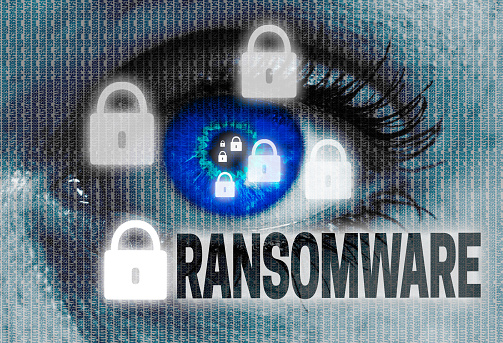Ransomware viruses regularly attack personal and business computers across the globe. They encrypt or otherwise deny access to files and programs. Malware developers demand payments in exchange for allowing users to recover their data. Depending on the quantity and value of the files, ransoms range from hundreds to thousands of dollars.

Such viruses remain difficult to counteract. As a researcher at a major anti-virus company recently said, “There is no cure to the ransomware threat today.” Nonetheless, it has started evolving into an even more dangerous form of malware known as a “cryptoworm.”
These highly sophisticated viruses have the same goal as conventional ransomware, but they spread far more efficiently. Worms automatically transmit themselves from one place to another with no need for human control. This development greatly increases the likelihood of an attack.
Losses
Computers at a medical center in California recently became infected with a cryptoworm. The virus encrypted hospital files and forced the institution to pay a $17,000 ransom. Brown University also suffered a ransomware attack. The Financial Times reports that Brown was able to restore backup data and remove the malware.
Prevention
Collectively, criminals have employed ransomware and cryptoworms to accumulate hundreds of millions of dollars. Businesses can often avoid their demands by taking preventive steps. For example, companies benefit from training employees to identify dangerous e-mail attachments, harmful websites and phishing attempts.
- Well-configured firewalls
- Quality anti-virus software
- Restrictive network settings
- Regular application updates
- Computer security training
Firewalls and anti-virus programs can’t always stop this malware, but they successfully intercept many ransomware viruses. Consider setting up a firewall to protect your network from the “Dark Web” by suspending access to I2P and TOR.
Use extra caution when opening Word documents, even if they seem to come from familiar people. It’s best to disable macros; these codes can trigger cryptoworm infections. At the same time, don’t assume you’re safe if you avoid Microsoft products. Ransomware also attacks Android and Linux machines, according to PC World.
Remember to remove unnecessary programs and update software whenever possible. Applications like Web browsers, PDF viewers and video players frequently contain defects that make them vulnerable to these infections. Although hackers usually find more flaws to exploit, the latest updates can patch known security holes and minimize risks.
A network administrator should only permit each staff member to access the computers, drives and directories that he or she truly needs to use. This will limit the ability of cryptoworms to spread throughout the network and infect every file. It also protects servers from any “rogue” employees.
External vendors may inadvertently expose a company to viruses. Business owners ought to thoroughly examine the details about security in contracts with vendors. Companies can benefit from insisting that such firms take extensive precautions and alert them to any system breaches as soon as possible.
Backups
Preventative measures don’t always succeed in averting ransomware or cryptoworm attacks. The most effective way to avoid paying a ransom is to frequently back up your files. Businesses should inspect and test backup systems to confirm they can actually restore the data if necessary.
Don’t put files on a storage device that remains attached to the network or a PC; this will allow a cryptoworm to scramble your backup data. These viruses can even attack files stored on off-site “cloud” servers. Be sure to keep one backup completely disconnected from other devices.
The bottom line is prevention delivers the best results, but thorough backups provide a crucial fail-safe. A wide range of businesses trust {company} to help them stay informed about the most recent IT news and maintenance techniques. Please contact {email} or dial (469) 635-5500 for further details.